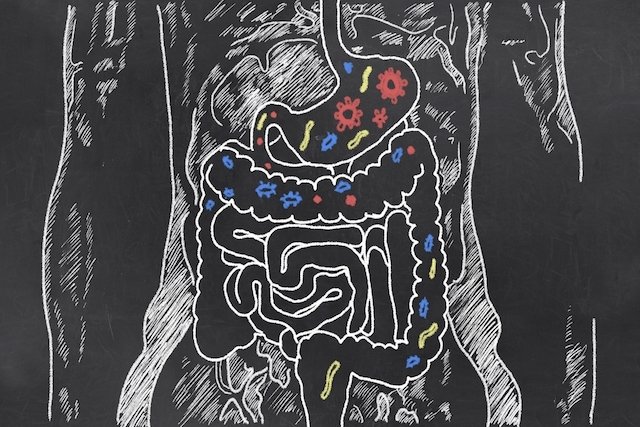Fecal transplantation is a form of treatment that allows the transfer of feces from a healthy person to another person with diseases related to the intestine, especially pseudomembranous colitis, caused by infection with bacteria. Clostridium difficile. Furthermore, the treatment also appears to be promising in the treatment of other diseases, such as irritable bowel syndrome, obesity and even autism.
The objective of fecal transplant is to regulate the intestinal microbiota, which is the set of countless bacteria that live naturally in the intestine. It is important that this microbiota is healthy, through a diet rich in fiber and avoiding the use of antibiotics unnecessarily, as it not only influences intestinal health, but can have effects on the development of immune, metabolic and neurological diseases.
See what can cause an imbalance in the intestinal microbiota and how to prevent this from happening.

What is it for
Fecal transplantation can be useful for the treatment of several diseases, such as:
1. Pseudomembranous colitis
It is the main indication for fecal transplantation, being characterized by inflammation and infection of the intestine by the bacteria Clostridium difficilewhich mainly infects hospitalized people using antibiotics, as it takes advantage of the elimination of healthy intestinal bacteria to establish itself.
The main symptoms of pseudomembranous colitis are fever, abdominal pain and persistent diarrhea, and its treatment is generally with antibiotics such as Metronidazole or Vancomycin. However, in cases where the bacteria is resistant, fecal transplantation is proven to be effective in quickly rebalancing the intestinal flora and eliminating the infection.
Learn more details about the diagnosis and treatment of pseudomembranous colitis.
2. Inflammatory bowel disease
Crohn’s disease and ulcerative colitis are the main forms of inflammatory bowel disease, and although it is not known exactly what causes them, it is known that, in addition to the influence of the immune system, there may be the action of unhealthy bacteria. in the intestine for the development of these diseases.
Therefore, performing a fecal transplant can be effective in improving Crohn’s disease or ulcerative colitis, especially severe or difficult-to-treat cases.
3. Irritable bowel syndrome
Irritable bowel syndrome appears to have several causes, such as changes in the intestinal nervous system, food sensitivity, genetics and psychological state, however, it has been shown that, increasingly, the intestinal flora influences its presence.
Thus, some current tests have shown that fecal transplantation is very promising for an effective treatment of this syndrome, although more tests are still needed to confirm the possibility of a cure.
4. Obesity and other changes in metabolism
It is known that the intestinal flora can be altered in obese people, and there is evidence that these bacteria modify the way in which the body uses energy from food, and, therefore, it is possible that this could be one of the causes of difficulty in eating. to lose weight.
Thus, studies have observed that it may be possible to treat, with fecal transplantation, both obesity and other changes that determine metabolic syndrome, such as high blood pressure, insulin resistance, increased blood glucose, cholesterol and high triglycerides, however, more is still needed studies to prove what this treatment should be like and who it is indicated for.
Furthermore, it should be remembered that a diet rich in sugar and fat, and low in fiber, is one of the main causes of dysregulation of intestinal flora and the survival of harmful bacteria, and, therefore, there is no point in having a fecal transplant if There is no diet that favors the survival of good bacteria.
5. Autism
It was observed, in a scientific study, that patients with autism who received fecal transplants had an improvement in symptoms, however, more studies are still needed to conclude that there really is a connection and influence of this procedure for the treatment of autism.
6. Neurological diseases
Another promising function of fecal transplantation is the possibility of treating and reducing the symptoms of neurological diseases such as multiple sclerosis, myoclonic dystonia and Parkinson’s disease, as an important link has been observed between intestinal flora and immune and brain functions.
Other possible uses
In addition to the diseases mentioned, fecal transplantation has been studied in the treatment and control of other diseases, such as chronic hepatitis, hepatic encephalopathy, immune hematological diseases, such as thrombocytopenic purpura, and in the treatment of generalized infections caused by resistant bacteria.
Therefore, although fecal therapy has been carried out in medicine for many years, the discoveries of its real potential for health are still recent, and medical studies still need to prove all these promises.
How the transplant is done
Fecal transplantation is performed by introducing the donor’s healthy feces into the patient. To do this, it is necessary to collect around 50 g of the donor’s feces, which must be analyzed to make sure they do not contain the bacteria. Clostridium difficile or other parasites.
Then, the feces are diluted in saline solution and placed in the patient’s intestine, using a nasogastric tube, rectal enema, endoscopy or colonoscopy. One or more doses may be necessary, depending on the disease being treated and the severity of the intestinal inflammation.
Generally, the procedure is quick and there is no pain or discomfort.

Sign up for our newsletter and stay up to date with exclusive news
that can transform your routine!
Warning: Undefined array key "title" in /home/storelat/public_html/wp-content/plugins/link-whisper-premium/templates/frontend/related-posts.php on line 12
Warning: Undefined array key "title_tag" in /home/storelat/public_html/wp-content/plugins/link-whisper-premium/templates/frontend/related-posts.php on line 13



